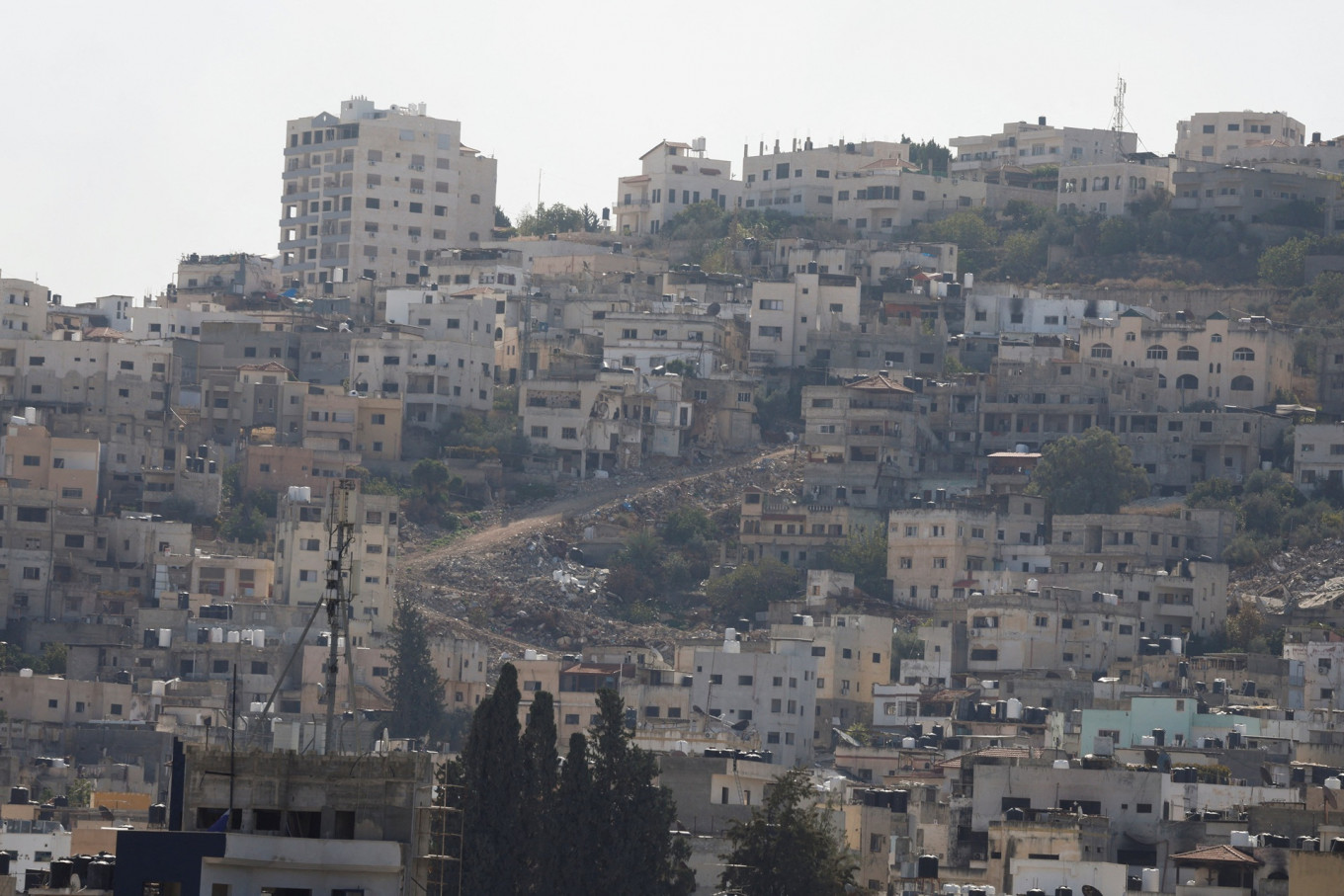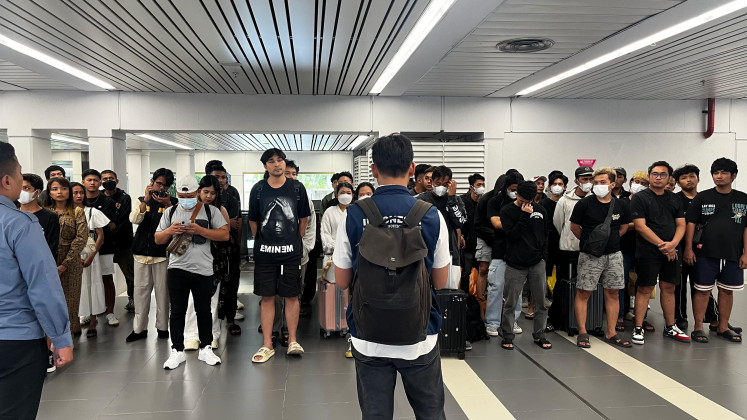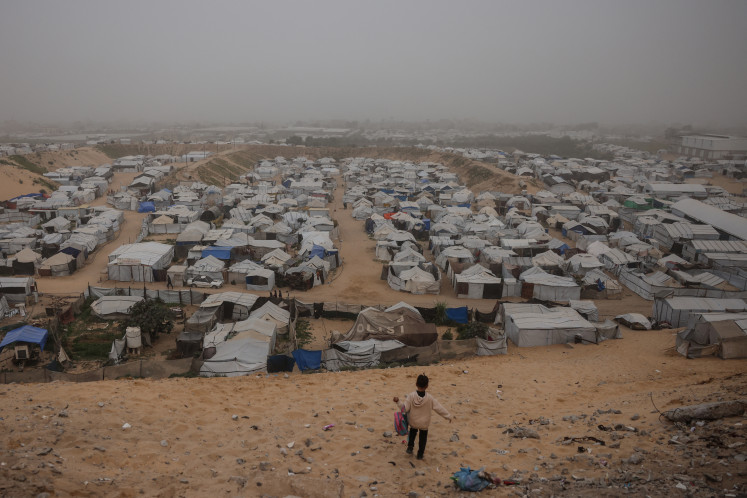Popular Reads
Top Results
Can't find what you're looking for?
View all search resultsPopular Reads
Top Results
Can't find what you're looking for?
View all search resultsHuman Rights Watch accuses Israel of war crimes in West Bank expulsions
The report describes soldiers storming homes, ransacking property and ordering families out via loudspeakers mounted on drones.
Change text size
Gift Premium Articles
to Anyone
I
srael’s expulsion of tens of thousands of Palestinians from three West Bank refugee camps in early 2025 amounts to war crimes and crimes against humanity, Human Rights Watch (HRW) said on Thursday, calling for urgent international measures to hold Israeli officials accountable and stop further abuses.
The rights group said about 32,000 residents of Jenin, Tulkarm and Nur Shams camps were forcibly displaced by Israeli forces during "Operation Iron Wall" in January and February. The displaced have been barred from returning, and hundreds of homes were demolished, said the group's 105-page report, titled "All My Dreams Have Been Erased".
"Ten months after their displacement none of the family residents have been able to go back to their homes," said Melina Ansari, a researcher for HRW who worked on the report, speaking to Reuters on Wednesday.
The Israeli military said in a statement to Reuters on Wednesday that it needed to demolish civilian infrastructure so that it could not be exploited by militants. It did not say when residents could return.
'A very hard life'
'The Geneva Conventions prohibit displacement of civilians from occupied territory, except temporarily for imperative military reasons or their security. HRW said senior officials responsible should be prosecuted for war crimes and crimes against humanity.
The report describes soldiers storming homes, ransacking property and ordering families out via loudspeakers mounted on drones. It said residents reported bulldozers razing buildings as they fled and that Israeli forces offered no shelter or aid, leaving families to crowd into relatives’ homes or seek refuge in mosques, schools and charities.
Hisham Abu Tabeekh, who was expelled from Jenin refugee camp, said that his family were not able to take anything with them when they were expelled.
"We are talking about having no food, no drink, no medicine, no expenses [...] we are living a very hard life,” said Tabeekh, speaking to Reuters on Wednesday.
HRW said it interviewed 31 displaced Palestinians from the three camps and analysed satellite imagery, demolition orders and verified videos. It found more than 850 structures destroyed or heavily damaged, while a United Nations assessment put the figure at 1,460 buildings. The camps, established in the 1950s for Palestinians displaced with Israel's founding in 1948, had housed generations of refugees.
HRW said that in response Israeli officials had written that the operation targeted what they called terrorist elements, but gave no reason for mass expulsions or the ban on return.
HRW said the expulsions, carried out while global attention focused on Gaza, form part of crimes against humanity of apartheid and persecution.
Surge in violence
Since Hamas-led attacks on southern Israel on Oct. 7, 2023, Israeli forces have killed nearly 1,000 Palestinians in the West Bank, expanded detention without trial, demolished homes and accelerated settlement building, while settler violence and torture of detainees have surged, the report said.
Settler violence surged in October, when Israeli settlers carried out at least 264 attacks against Palestinians, the UN has reported, the biggest monthly total since its officials began tracking such incidents in 2006.
Israel cites historical and biblical ties to the West Bank, which it captured during a 1967 war, and says the settlements provide strategic depth and security.
Most of the global community considers all settlements illegal under international law. Israel rejects this, saying the West Bank is "disputed" rather than "occupied" territory.
HRW urged governments to impose targeted sanctions on Israeli officials and commanders, suspend arms sales and trade benefits, ban settlement goods and enforce International Criminal Court warrants.
The group characterised the expulsions as ethnic cleansing, which it described as a non-legal term commonly used to describe the unlawful removal of an ethnic or religious population from a specific area by another group.










